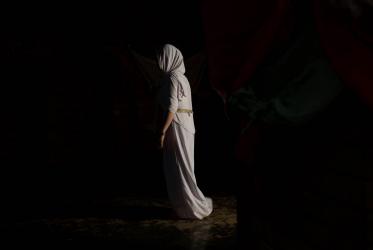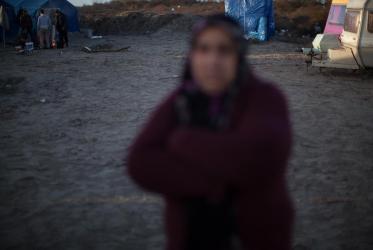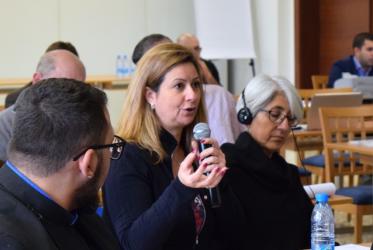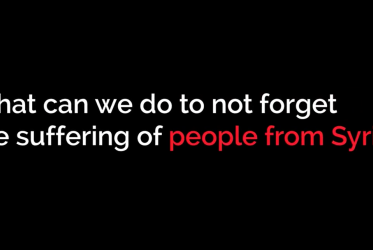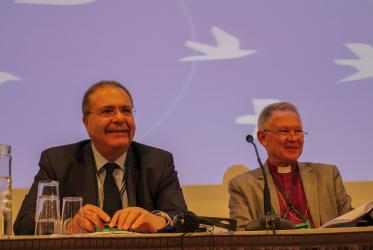Displaying 121 - 140 of 237
14 December 2016
WCC urges immediate focus on safety, security in Aleppo
05 December 2016
Churches’ diaconal action in the Middle East analyzed
01 December 2016
In Syria and Iraq, minorities must come out of the darkness
28 November 2016
Out of the darkness
28 November 2016
Paralyzed by shock
28 November 2016
Driven out
28 November 2016
New videos help congregations hasten HIV response
20 October 2016
New Executive Committee members elected in Trondheim
28 June 2016
Is there hope for the Middle East?
25 June 2016
